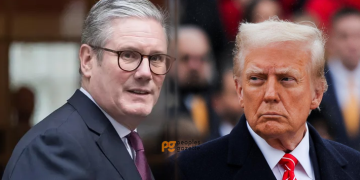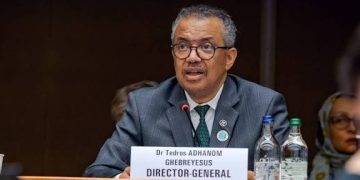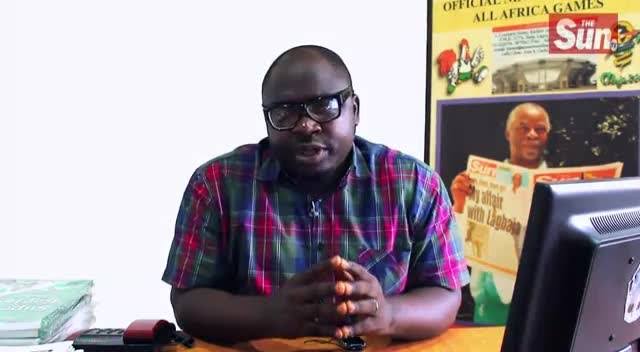The Nigerian Constitution is clear and unambiguous about the position of a governor. Section 176(2) of the 1999 Constitution (as amended) states that “the Governor of a State shall be the Chief Executive of that State.” By implication, a governor is not the leader of one senatorial district, ethnic group, or political faction. He is entrusted with the sacred responsibility of governing the entire state and safeguarding the collective welfare of all its citizens, irrespective of origin or affiliation.
Governor Monday Okpebholo has, from the outset of his administration, embraced this constitutional mandate with clarity and consistency. He has shown through both words and actions that he is a detribalised leader who sees Edo State as one indivisible entity. For him, leadership is not about pandering to sectional interests but about building bridges, correcting historical neglect, and laying a foundation for sustainable growth across all three senatorial districts.
It is within this constitutional and moral framework that we must understand the Governor’s policies and priorities. The distribution of projects and appointments has not been arbitrary. Rather, it reflects deliberate choices aimed at balance, fairness, and long-term impact. Edo South, in particular, has been a major beneficiary of these interventions, both in terms of infrastructure and political representation.
Governor Okpebholo’s vision for Edo South is evident in the scale and scope of projects already underway. The Benin–Abraka Road reconstruction, awarded at ₦21.22 billion, stands out as a landmark intervention. This critical road, stretching over 100 kilometers, had long been a nightmare for commuters, farmers, and traders. By investing in its full rehabilitation, the administration is opening economic corridors that will boost commerce and ease mobility for thousands daily.
Similarly, the Benin–Sapele Road reconstruction has become a symbol of relief for Edo people. The Federal Government, through the Ministry of Works, had terminated the earlier contract due to poor performance. Stepping into the breach, Governor Okpebholo has ensured that a 23-kilometre section is now being delivered at a cost of ₦35 billion, giving commuters and businesses renewed hope that this vital artery will no longer be a death trap but a channel of prosperity.
In the state capital, Benin City, the Governor has embarked on one of the most ambitious urban renewal projects in decades; the Rahmat Park Flyover. For years, traffic congestion at that junction has been a blight on productivity, wasting countless man-hours and stifling commercial activity.
The flyover, once completed, will not only ease movement but will also stand as a symbol of Edo’s transition into modernity. Complementing this is the Agbor Park Bypass, a long-neglected route that is now receiving the attention it deserves, further decongesting the capital city and improving connectivity for commuters.
Beyond roads, the administration is investing heavily in human development. The Stella Obasanjo Hospital Complex is undergoing a comprehensive reconstruction to transform it into a world-class facility capable of delivering quality healthcare to Edo people. This intervention is not just about bricks and mortar but about safeguarding lives and building a healthier future for the state.
Equally transformative is the Edo Tech City Project, designed to make the state a hub for digital innovation. In an era defined by artificial intelligence, data science, and digital enterprise, Governor Okpebholo is positioning Edo youths to compete globally. This initiative will generate jobs, nurture creativity, and ensure that Edo South and the wider state are not left behind in the fourth industrial revolution.
Other ongoing interventions underscore the Governor’s inclusive vision for Edo South. In education, the Okhoro–Egor axis is witnessing the reconstruction of several dilapidated primary and secondary schools, with modern classrooms, laboratories, and ICT centres being delivered to give children access to 21st-century learning.
In housing, the administration has rolled out the first phase of an affordable housing scheme near the Ugbowo axis to address urban population growth while providing decent shelter for middle – and low-income earners.
In rural electrification, Governor Okpebholo has extended the state’s power initiative to underserved communities around Ovia and Orhionmwon, installing solar mini-grids and rehabilitating distribution lines to ensure villages once cut off from modern life are now connected to power. Water supply, too, is being restored through the revival of moribund borehole and reticulation projects across Ikpoba-Okha and Egor, bringing relief to thousands of households.
While infrastructure often attracts the most attention, it is important to emphasize that Edo South has also benefitted from political balance under this administration. The Governor has made key appointments into strategic offices from the senatorial district. Commissioner nominations, too, have favoured Edo South more than other zones. This is not accidental; it reflects the Governor’s inclusive approach to governance.
By ensuring that Edo South is not only developed but also represented in decision-making, Governor Okpebholo is living out the constitutional principle that a governor is the father of all, not a sectional leader. It is, therefore, both uncharitable and inaccurate for any group to suggest that the district has been marginalised.
Sadly, instead of consolidating on these gains, some voices have chosen the path of discord, attempting to blackmail the government over commissioner appointments. Such agitation is both needless and counterproductive.
Edo does not need distractions. Edo does not need infighting. Edo does not need political undercutting. What the state needs at this defining moment is unity of purpose, collective resolve, and support for a Governor who is delivering on his promises.
The lessons of history are clear. The great legacies of Dr. Samuel Ogbemudia and Professor Ambrose Alli in the old Bendel and Midwestern States were not achieved in an atmosphere of division or petty grievances. They were built on a shared commitment to progress, where leaders and citizens alike transcended narrow interests to pursue the greater good. Today, Governor Okpebholo is treading the same path; firm, focused, and detribalised in outlook.
Governor Okpebholo has chosen the harder path, the path of legacy, not expediency. He is investing in projects that will outlive political cycles and redefine the future of Edo State. For this vision to be realised, every son and daughter of Edo must rise above narrow interests and rally behind him.
The future of our state depends on the choices we make today. Do we embrace unity, or do we succumb to division? Do we support progress, or do we allow distractions to derail us? The answer must be clear. Edo South, and indeed all of Edo State, stand to gain immensely from the consolidation of Governor Okpebholo’s developmental strides.
Let us, therefore, choose wisely. Let us choose unity over division, legacy over fleeting ambition, and progress over regression. With Governor Okpebholo’s vision and the collective will of the people, Edo State will not only rise to greatness but will take its rightful place as a model of development and good governance in Nigeria.
Fred Itua is the Chief Press Secretary to Governor Monday Okpebholo of Edo State







































